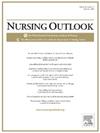Toward amplifying the good in nursing education: A quality improvement study on implementing artificial intelligence-based assistants in a learning system
IF 3.7
2区 医学
Q1 NURSING
引用次数: 0
Abstract
Effective integration of artificial intelligence-based tools into nursing care and science will depend on aligned integration in nursing education. Our quality improvement study documents the process and short-term outcomes of introducing a generative AI-based tool into a nursing education system. Nursing school faculty and staff at one private, southeastern university (n = 364) piloted an internally constrained chatbot system for 2 months in 2024. Data were captured to evaluate the (a) costs of implementation, (b) use cases in nursing education, and (c) projected system impact. Costs were lower than $2 per month, per user. There were 148 diverse case reports from 35 unique users. On a separate survey, 35 respondents rated technology acceptability as 5.2/7.0. Projected impact is high (6.3/7.0), but not entirely positive (5.9/7.0). Benefits and challenges were identified. Nursing will need to invest expert time and community resources to evolve education systems along with these evolving technologies.
朝着扩大护理教育的好处:在学习系统中实施基于人工智能的助手的质量改进研究
将基于人工智能的工具有效地整合到护理和科学中,将取决于护理教育的协调整合。我们的质量改进研究记录了将生成式人工智能工具引入护理教育系统的过程和短期结果。东南部一所私立大学的护理学院教职员工(n = 364)在2024年试用了一个内部约束聊天机器人系统2个月。收集数据以评估(a)实施成本,(b)护理教育用例,以及(c)预计的系统影响。每个用户每月的成本低于2美元。有来自35个独立用户的148个不同的案例报告。在另一项调查中,35名受访者将技术可接受性评为5.2/7.0。预计影响是高的(6.3/7.0),但不是完全积极的(5.9/7.0)。确定了利益和挑战。护理将需要投入专家时间和社区资源,使教育系统随着这些不断发展的技术而发展。
本文章由计算机程序翻译,如有差异,请以英文原文为准。
求助全文
约1分钟内获得全文
求助全文
来源期刊

Nursing Outlook
医学-护理
CiteScore
6.20
自引率
7.00%
发文量
109
审稿时长
25 days
期刊介绍:
Nursing Outlook, a bimonthly journal, provides innovative ideas for nursing leaders through peer-reviewed articles and timely reports. Each issue examines current issues and trends in nursing practice, education, and research, offering progressive solutions to the challenges facing the profession. Nursing Outlook is the official journal of the American Academy of Nursing and the Council for the Advancement of Nursing Science and supports their mission to serve the public and the nursing profession by advancing health policy and practice through the generation, synthesis, and dissemination of nursing knowledge. The journal is included in MEDLINE, CINAHL and the Journal Citation Reports published by Clarivate Analytics.
 求助内容:
求助内容: 应助结果提醒方式:
应助结果提醒方式:


